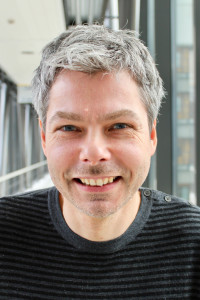Assistant professor

Since my post-doctoral period I have been interested in the reprogramming of somatic cells into pluripotent stem cells and the differentiation of these induced pluripotent stem cells (iPSCs) into different cell types. Human iPSCs are a great tool to study diseases caused by the patient-specific genetic landscape, and to link the patient’s phenotype to a phenotype in a dish. As co-head of the LUMC human iPSC hotel I have been involved in optimizing and implementing protocols to generate, differentiate and genetically modify human iPSCs. My own research is focused on the use of iPSCs to model genetic, monogenic as well as complex, disorders. For this we exploit our expertise in the differentiation and the genetic modification of human iPSC. We have studied the use of human iPSCs to treat a primary immune deficiency, and have modelled RAG2-severe combined immunodeficiency (SCID). Currently we are modelling complex genetic neural disorders with a broader phenotype.
I performed my PhD at the Netherlands Cancer Institute under supervision of Prof. Dr. A. Berns. During this period I generated knockout and transgenic mice to study the Pim proto-oncogenes and their role in lymphomagenesis using genetic screens. In 2003 I joined the lab of Prof. Dr. J. Frisén at the Karolinska Institute (Stockholm, Sweden) to initiate a novel line of research on the dedifferentiation of mammalian cells. This research was continued at the LUMC, where I became a group leader. In 2010 we started the LUMC human iPSC core facility (now the LUMC human iPSC hotel), a joint initiative of the departments of Anatomy and Embryology and Cell and Chemical Biology, which I have been co-heading since the start. The research in my own group has been mainly focused on unraveling the functions of long non-coding RNAs in disease and differentiation, and the modeling of immune and neural disorders using iPSCs.



Looking for information on one of our topics, a new place to conduct your research or experienced research to join forces with? Feel free to contact us.!